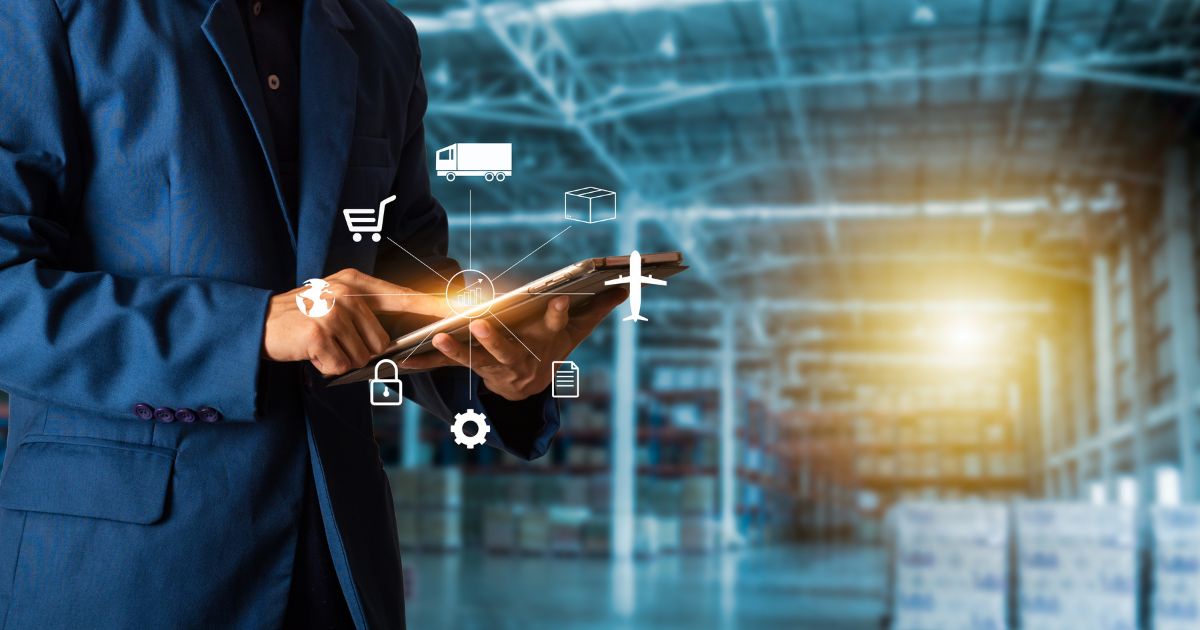In the dynamic landscape of modern business, the effective management of logistics plays a pivotal role in ensuring the seamless flow of goods and services. Logistics management encompasses a series of processes that facilitate the planning, implementation, and control of the efficient movement and storage of goods, services, and information from the point of origin to the point of consumption. This article explores the intricacies of logistics management, shedding light on its key components, challenges, and the ever-evolving technologies that are reshaping the logistics landscape.
What is Logistics Management?
At its core, logistics management is the strategic coordination of various activities aimed at optimizing the movement of goods and services. It involves a meticulous orchestration of processes such as procurement, production, transportation, storage, and distribution to ensure that products reach their intended destinations in a timely and cost-effective manner. The primary goal is to enhance overall efficiency, minimize costs, and improve customer satisfaction.
Key Components of Logistics Management
- Procurement: The logistics journey begins with the procurement of raw materials. Effective procurement strategies involve negotiating with suppliers, ensuring quality standards, and maintaining a streamlined supply chain.
- Production Planning: Once materials are procured, the next step is efficient production planning. This involves optimizing manufacturing processes to meet demand while minimizing excess inventory and associated costs.
- Inventory Management: Maintaining an optimal level of inventory is crucial for successful logistics management. Balancing the need to meet customer demand with the cost of storing excess inventory is a delicate task.
- Transportation: The transportation of goods is a critical aspect of logistics. Whether by land, sea, or air, selecting the right mode of transportation is vital for timely deliveries and cost-effectiveness.
- Warehousing: Efficient storage and warehousing are essential to logistics. Warehouses act as hubs for inventory management, providing a central point for sorting, packaging, and distributing products.
- Distribution: The final stage involves the distribution of products to end-users. Logistics managers must design effective distribution networks to ensure products reach consumers most efficiently.
Challenges in Logistics Management
Despite advancements in technology, logistics management faces several challenges that can impact the efficiency of supply chains:
- Globalization: With businesses operating on a global scale, logistics management must navigate complex international regulations, varying customs procedures, and diverse cultural considerations.
- Demand Forecasting: Accurate demand forecasting is crucial for maintaining optimal inventory levels. Fluctuating consumer preferences and unexpected events can make this a challenging task.
- Technological Integration: While technology offers solutions to many logistics challenges, integrating new systems into existing infrastructure can be complex and time-consuming.
- Environmental Sustainability: The logistics industry is under increasing pressure to reduce its environmental impact. Balancing the need for efficient transportation with sustainability goals is a growing concern.
- Risk Management: External factors such as natural disasters, political instability, and economic downturns can disrupt supply chains. Effective risk management strategies are essential for maintaining continuity.
Technological Advancements in Logistics
The rapid evolution of technology has brought about transformative changes in logistics management. Here are some key technological advancements reshaping the industry:
- IoT (Internet of Things): IoT sensors and devices provide real-time visibility into the movement and condition of goods. This data allows for better tracking, monitoring, and optimization of logistics processes.
- Blockchain: Blockchain technology enhances transparency and security in supply chain management. It enables the creation of a tamper-proof record of transactions, reducing the risk of fraud and errors.
- Automation: The use of automation in warehouses and transportation systems streamlines operations, reduces human error, and improves overall efficiency.
- Artificial Intelligence (AI) and Machine Learning: AI and machine learning algorithms analyze large datasets to make predictions and optimize logistics processes. This includes route planning, demand forecasting, and inventory management.
- Robotics: Autonomous robots are increasingly being used in warehouses for tasks such as picking and packing, speeding up operations and reducing labor costs.
The Future of Logistics Management
As we look to the future, logistics management will continue to evolve in response to emerging technologies and shifting global dynamics. Innovations in areas such as autonomous vehicles, drone delivery, and sustainability-focused solutions are likely to shape the next phase of the logistics industry.
Take your logistics to the next level with NextDue! Discover smart and easy solutions for efficient and tech-driven management. Get started now!
Conclusion
Logistics management is a multifaceted discipline that plays a critical role in the success of businesses operating in a globalized world. From procurement to distribution, effective logistics management involves strategic planning, technological integration, and adaptability to overcome challenges. As technology continues to advance, the logistics landscape will undoubtedly undergo further transformations, presenting both challenges and opportunities for those in the industry.


No comments yet